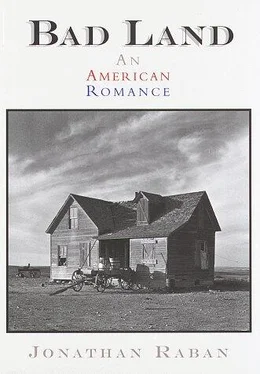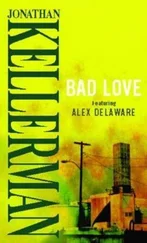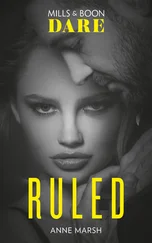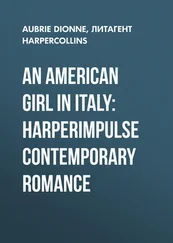Before his marriage, Cameron lived alone on Eynhallow, more a rock than an island, in the Orkneys, where he spent his time shooting, stuffing and cataloging the local seabirds — an existence beside which life on a remote Montana ranch might seem unduly gregarious. Evelyn’s mother and brothers (Mr. Flower died when she was four) thought Cameron a poor fish, and the wedding took place in Scotland, under a cloud.
The plan was to go out to Montana to raise polo ponies for the British market. This ingenious idea would keep the Camerons in touch with the grand world when they disappeared to the back of beyond, and the arithmetic looked unassailable. A good polo pony fetched about a hundred guineas in England—$420. Suitable colts could be bought on the plains in the United States for between $2.50 and $5.00.
Most of the venture capital for this scheme came out of Evelyn’s trust-fund income of £300 a year. The couple sailed from Liverpool, ready to become millionaires. Arrived in Custer County, Montana, they rented a ranch and, in the socially elastic milieu of the far West, became known as Lord and Lady Cameron. Ewen had his noble ancestors, Evelyn had her connection to Lord Battersea; neither had any money to speak of, and a title was useful when it came to raising credit and not paying bills.
For there were unanticipated snags in the polo-pony gold mine. Good yearlings could, indeed, be bought in Montana for small change, and it cost little to raise them on open rangeland. But they traveled badly. The transatlantic voyage made them sea-sick, and, weakened by starvation, they developed pneumonia and died. Of the survivors, some went for good prices: Ewen sold a pony to the Earl of Howth for £88, another to an officer in the Lancers for 80 guineas, and he arranged to supply a rich English brewer with regular shipments of Montana ponies. However, British buyers showed “great prejudice” (Evelyn’s words) against the necessary American practice of branding the animals’ rumps. Branding was simply one of those things that was not done in England; and therefore it was “not done” to have a horse with this plebeian signifier on its hindquarters. Worse, the Cameron ponies were wild to the point of being uncontrollable. One very nearly succeeded in chucking itself and its rider into the Thames, over the railings of Putney Bridge.
Very soon, the Camerons were badly strapped for cash. Ewen took to the high ground, escaping into ornithological research. He wrote articles on Montana birds for The Auk , a bird-watchers’ magazine that paid its contributors in offprints. “Bohemian waxwings,” he wrote, “shot across our path in swarms, alighting to feed on the berries close at hand, while the sound of their rushing wings awoke the silent cedars.” He decorated his prose with allusions to Milton and Virgil, and covered page after page with fastidious, miniature handwriting, which Evelyn would later type up and mail to the editor. He also appeared in print in the Miles City and Terry papers, where his name was published in the lists of tax defaulters.
More constructively, Evelyn took in boarders — visiting Englishmen, scouting out their prospects of ranching in Montana. For £200 a year she provided a home for her feckless and quarrelsome brother, Alec, who was the despair of his trustees, and was the model of the ne’er-do-well remittance man. (Alec had a delicate, girlish face that Evelyn herself might once have been glad to possess.) She dug and planted a kitchen garden, from which she sold vegetables in town. She raised chickens, and sold the eggs. A small herd of cows yielded salable quantities of milk, butter and cream. Evelyn’s canny tough-mindedness and patient labor kept Ewen in the polo-pony business long after it should have bankrupted him.
Her crown-octavo diaries, bound in green and claret morocco, and manufactured by a Bond Street stationer, are part of the Cameron archives, held by the Montana Historical Society in Helena. Leafing through them now, in the strip-lit second-floor reading room, one is held at a teasing, ironic distance from the world on which they report. Outside, at midday, under a January sky of unsmudged blue, the temperature is 4 degrees Fahrenheit, the warmest it has been in a week of Arctic weather. In the reading room, it’s 72, winter and summer.
The weather in the green diary open in front of me exactly matches the weather outside the reading room. But the ranch house is heated by a potbellied stove, fed with gray lignite coal, quarried by Evelyn from an open seam on the prairie, which pops and whistles in the grate. “Chores Galore” is the day’s headline. “Arose at 6. Bt. 8. Killed 3 roosters and disembowelled them. Calf dead. Baked brown bread. Varnished. Cooked chicken. Sundry …” Evelyn’s handwriting is bigger than Ewen’s, her capital letters, especially the C’s and S’s, prettified with confident curlicues.
That she kept a diary at all, writing around two hundred words a day, every day without fail, is surprising enough, given the life that the diaries describe. Keeping the ranch animals alive, keeping her abstracted husband and her boarders fed and warm, looking after her truck garden, milking the cows and breaking in the wild ponies, Evelyn had chores galore around the clock. Yet the habit of leisure, acquired in Surrey, where a full platoon of servants ran the Flower household, stayed with her in Montana. She was brought up to be a lady; ladies have time for reading and hobbies; and so, somehow, Evelyn made time with the same resourcefulness that she made money.
She liked parlor tricks, and copied their instructions into a commonplace book. “Carefully choose nine matches and challenge onlookers to pick them all up at once with one match …” (Neat perspective drawings of the matches accompanied this one.) She cut out snippets of gossip from the English papers and pasted them into the endpapers of her diaries; peers who went to jail and peers who married housemaids were favorite items. She transcribed a 2,500-word article in Country Life on outdoor mushroom culture for pleasure and profit. She made notes on immigrant life in Australia, field sports in Egypt, the rise of the motor lifeboat and the fertility of the mule. She made a wind harp, and sent away for a banjo.
She did a lot of reading. She kept abreast of England with the back numbers of the Bystander , the Lady, Punch and London Opinion that were mailed to her by her mother and her mother-in-law. She gutted novels late at night by candlelight. From George Eliot’s The Mill on the Floss , she copied out Mrs. Poyser’s remark: “I’m not denying that women are fools. God almighty made ’em to match the men.” Her growing irritation with Ewen surfaced in fugitive entries: when he was away in England with a shipment of ponies, she found her feelings reflected in an amended proverb that she may have found on the back of a matchbox: “Absence makes the heart grow fonder — of the other fellow.” When he was back in Montana, she came across another quote to fit her mood: “A Hermit and a wolf or two/My sole acquaintance constitute.” She adopted for herself the fierce motto of the Scottish kings: Nemo me impune lacessit —no one provokes me with impunity. Ewen, in his withdrawn oddity and with his capacity to fritter away her modest private income, must have been a constant source of provocation.
She went in for newspaper competitions. Always on the lookout for the windfall of a cash prize, she filled in quizzes, supplied the endings to uncompleted mystery stories, and, when the Santos vacuum cleaner company offered a first prize of $500 for the best six-word slogan associating its product with health and cleanliness, Evelyn spent a fortnight trying to cook up a winning phrase. “Always Alert To Abolish Dirt,” was her first effort. “Dirt Flies Out When I’m About.” The preposition was the problem. Evelyn’s understanding of the principle of the machine was shaky: she seemed to think that vacuum cleaners blow rather than suck. “Disease, Decay, I Blow Away.” Disease was a little vague; she needed a more precise word — something more modern and scientific. “Microbes Die When I Am By.” “Microbes Despair That Feel My Air.” “The Housewife’s Delight, The Microbe’s Blight.” She tried a blander line: “Santos Cleaner Assures Health & Cleanliness.” “In This Arena The Only Cleaner.”
Читать дальше












